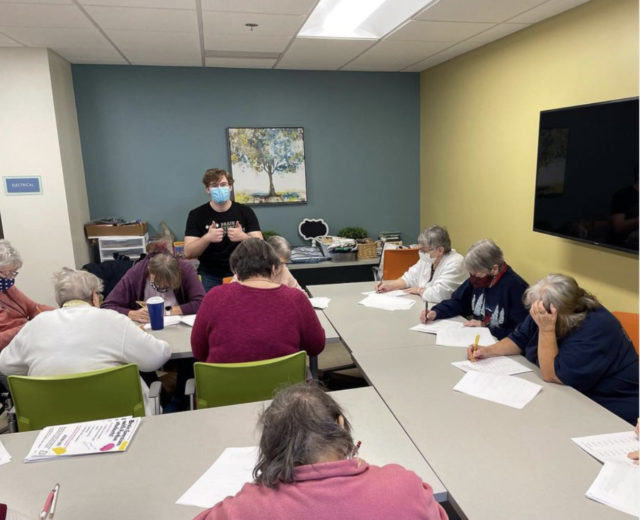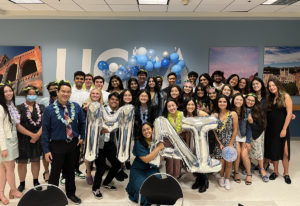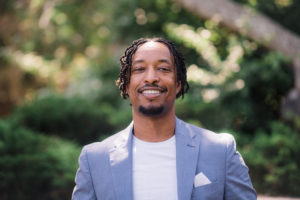A nonprofit founded by a UCLA student was nominated as a finalist for the 2024 Westly Prize for Young Social Innovators.
The Brain Exercise Initiative, founded by UCLA medical and Harvard law student Esin Gumustekin, focuses on helping older people avoid memory loss by using brain exercises, according to its website. BEI was one of eight finalists for three awards of $40,000 from the Westly Foundation, whose winners were announced Jan. 21.
Gumustekin, who graduated from UCLA in 2021 with a degree in neuroscience, said she founded BEI in 2019 after witnessing her grandmother’s experience with Alzheimer’s disease. When working at a biotechnology company in San Diego a few years later, Gumustekin said she learned about neuroscientist Dr. Ryuta Kawashima’s research on how regularly doing cognitive exercises such as reading aloud and performing simple math can benefit memory and cognition.
“When I found out about all of the amazing work that’s been done and how such simple exercises could have a profound impact, I thought, ‘This is such a great opportunity for us to get involved within our own community,’” Gumustekin said.
She then began volunteering at a retirement home near UCLA, where she led senior citizens through her modified versions of Kawashima’s exercises.
Gumustekin said the greatest challenge BEI initially faced was getting seniors to commit to the exercises. However, after delivering presentations on the benefits of brain exercise, Gumustekin said she saw an increase in participants.
As the exercises became more and more successful, the project then spread to about five retirement homes and 50 volunteers, Gumustekin said.
One of the volunteers who joined was Juliet Stephenson, a microbiology, immunology and molecular genetics alumnus and BEI’s director of communications. Stephenson said she had always enjoyed working with older adults, but became especially interested in helping those with Alzheimer’s disease and dementia after taking a course on aging her freshman year.
“It can be so upsetting watching someone you know that has Alzheimer’s disease, watching them deteriorate,” Stephenson said. “BEI is this amazing opportunity to not only engage with older adults, but actually have a positive impact, potentially, on their cognitive functioning and their social well-being.”
Today, BEI has over 80 university chapters nationwide, including one at UCLA, and more than 1,300 student volunteers, Gumustekin said. Volunteers create cognitive exercise packets and lead sessions incorporating reading, math and social interaction, as well as a newly developed writing session based on feedback from retirement homes, Gumustekin said.
As BEI gained popularity in retirement homes, the initiative then expanded to older adults living at home who did not receive considerable social interaction, Stephenson said.
“One of those older adults that we have recruited is actually my grandfather,” she said. “Our UCLA chapter is still doing activities with him to this day. And every time I talk to him, he’s just so impressed with how kind everyone is to him, and it really makes his day every single day and definitely makes a really big difference in his social interaction and general moods.”
Gumustekin said she hopes to expand the initiative to a wider range of demographics.
For example, the initiative developed a mobile app during the COVID-19 pandemic to increase the number of people they reached, she said. The app provides virtual arithmetic and reading comprehension passages that become increasingly complex as the user’s engagement increases.
“We hope to expand to more retirement homes. We hope to reach individuals living at home that before we weren’t able to reach,” Gumustekin said. “We hope to use some of that money to improve the app (and) make it more engaging so that we can spread to more rural communities.”
One way the initiative has expanded to other communities is through collaborations. Volunteers recently collaborated with Goodwin Living, a Virginia-based nonprofit serving around 2,500 seniors through housing, therapy and other services, said Rob Liebreich, CEO of Goodwin Living.
Liebreich said the nonprofit started cognitive exercise programs after he saw how they benefited his mother, who was experiencing cognitive decline.
“Within about a month, her symptoms dissipated and went away, which was awesome because it was the only intervention that we had introduced,” Liebreich said.
Liebreich said he worked with BEI to help the latter expand nationally by introducing BEI volunteers to senior living providers in his network, securing them speaking engagements at industry conferences and providing guidance on structuring their curriculum. He added that the initiative’s work has helped build a foundation to support millions of older adults.
In the future, Gumustekin said she hopes to spread BEI to more universities across the United States and expand internationally, including to Canada and Europe.
“We’ve received really great positive feedback of how the individuals like coming to the program,” Gumustekin said. “We would often hear that, ‘My mom or dad is really enjoying the program. We’ve seen a difference. They’re more engaged than they were prior.’”






Comments are closed.